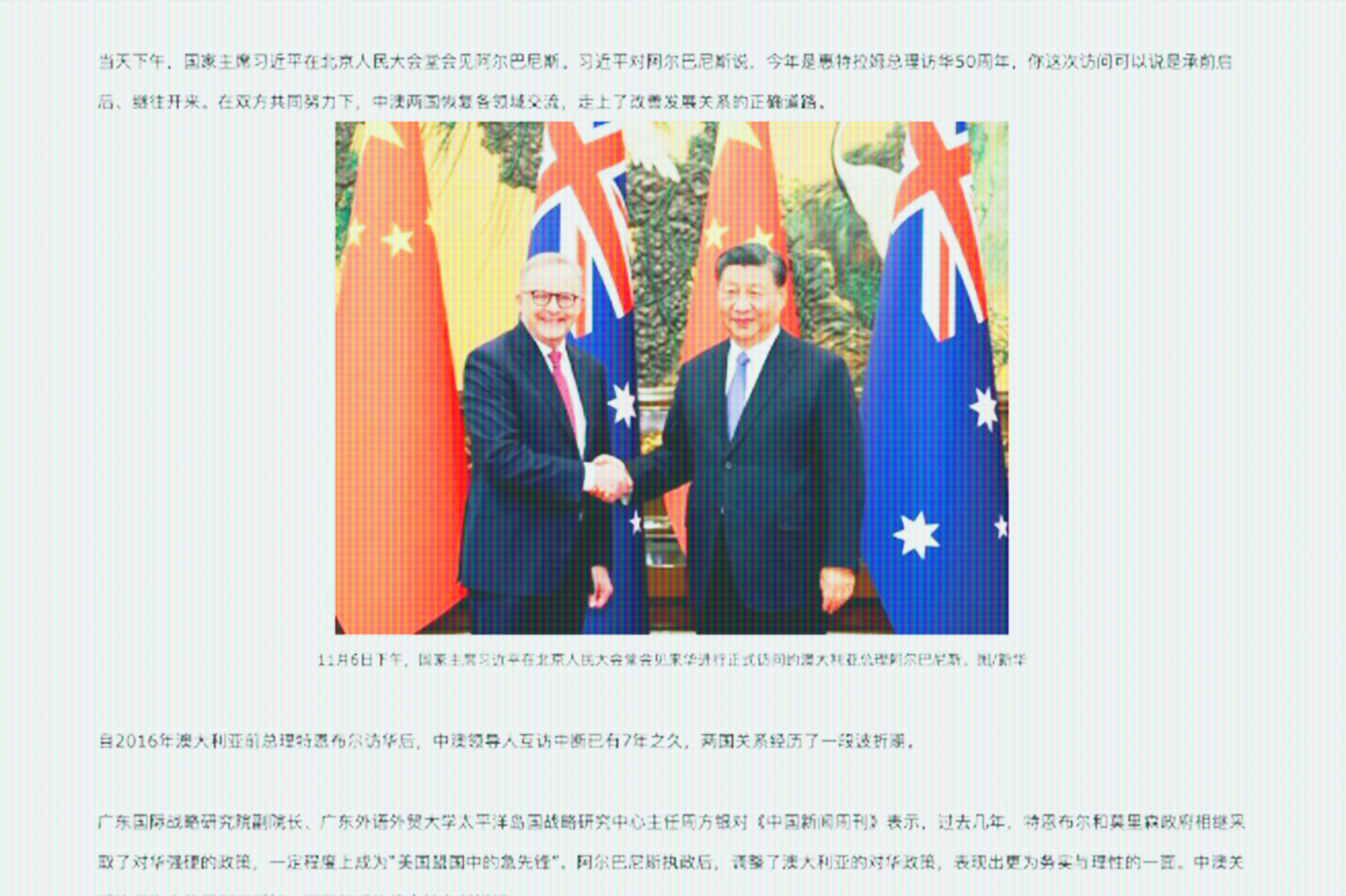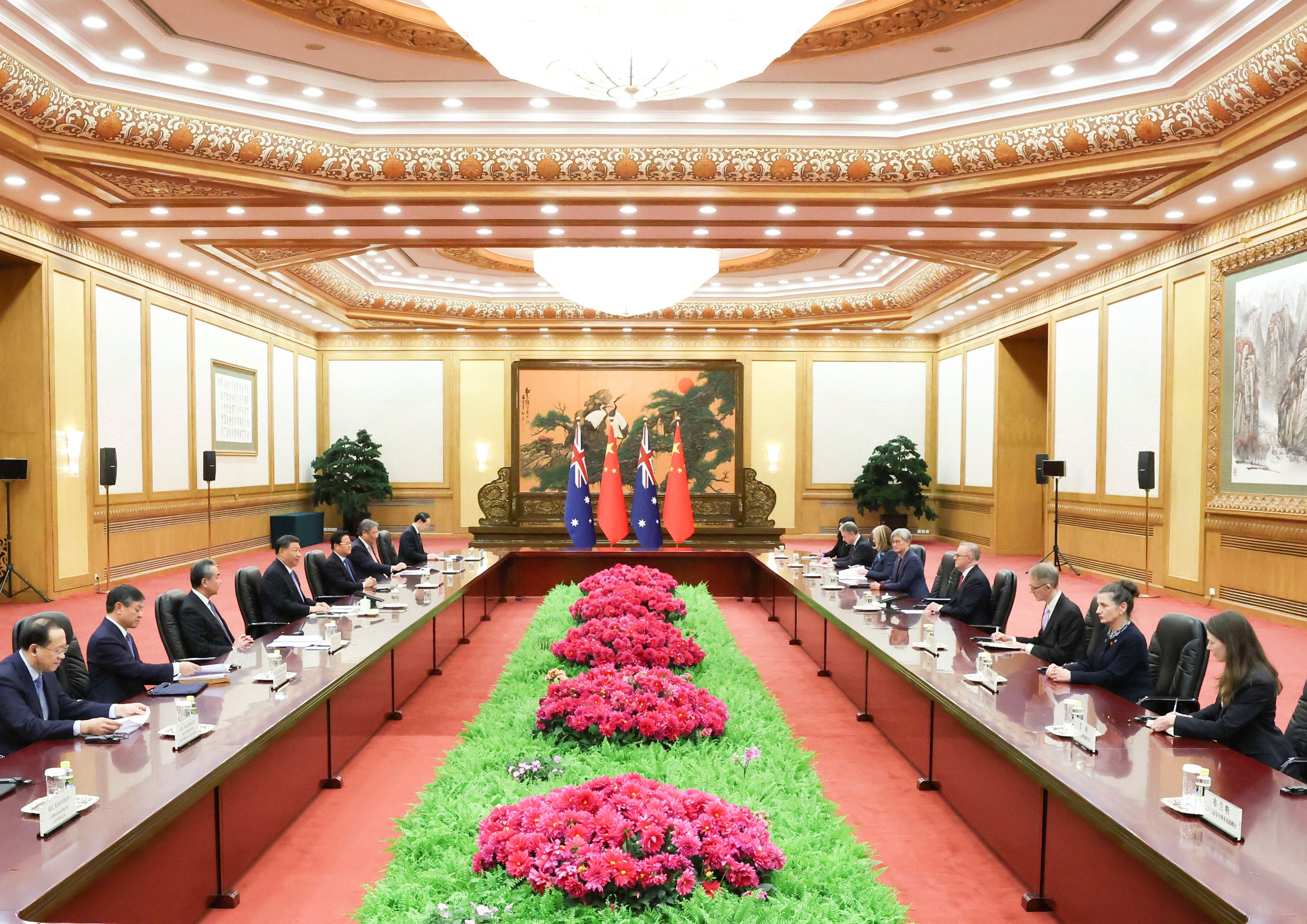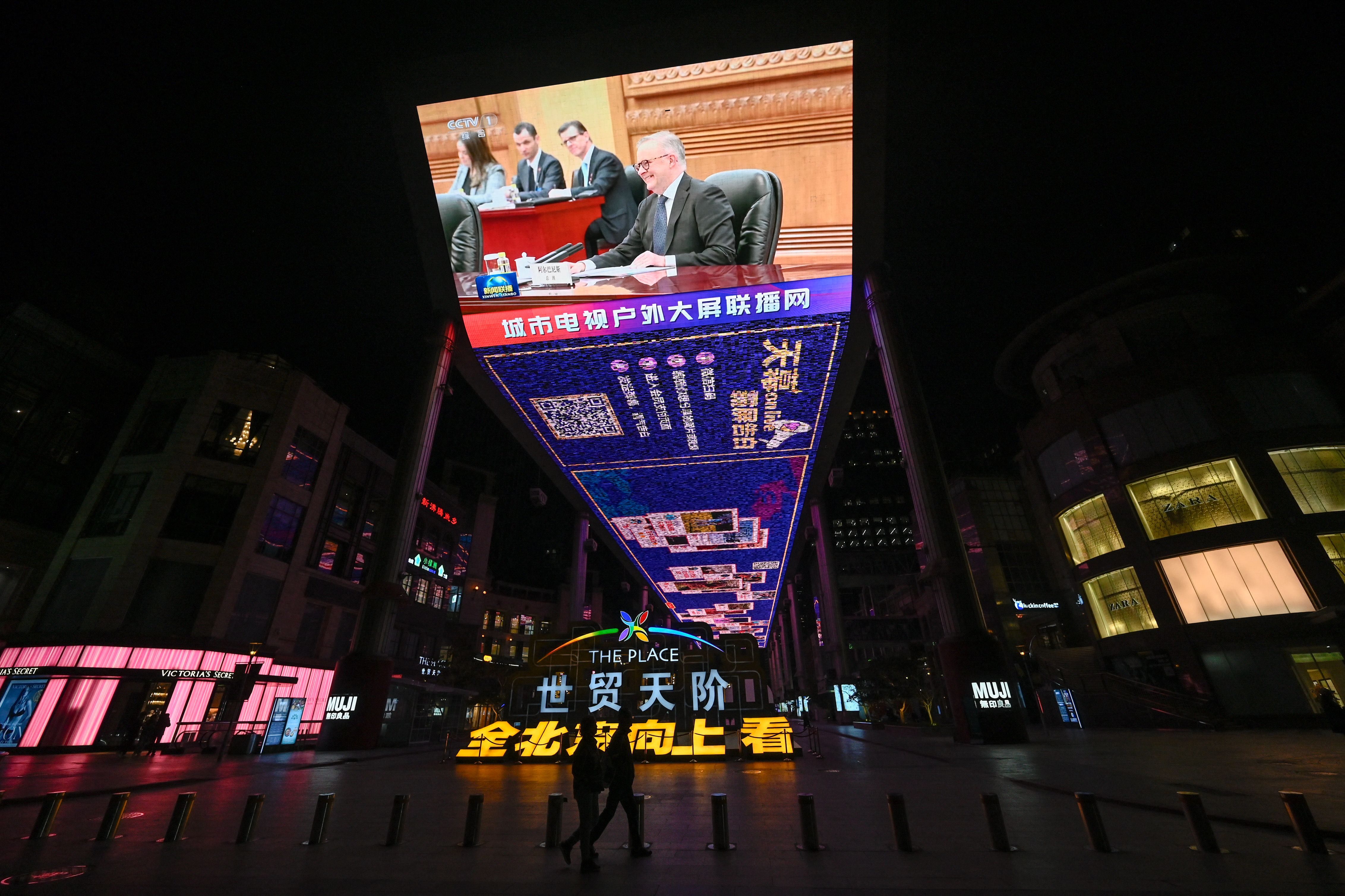
Politics & Society
The China divide

Although the Australian PM’s recent visit was well-received in Beijing, Chinese media remains unsure how Australia can balance its interests with both China and the US
Published 29 November 2023
As the first Australian Prime Minister to visit China since 2016, Anthony Albanese repeatedly said his goal in meeting President Xi Jinping was to “stabilise” relations between the two countries.
Following those talks in early November, it appears that some of the previous tensions are dissipating in a diplomatic thaw, with Chinese media taking a positive view of the visit and expressing cautious optimism for future China-Australia relations.

The way the Chinese media usually reports on the outcomes of these kinds of high-level meetings is a good indicator of the official position of the Chinese state.
In the case of these meetings, the media made much of a shift away from ‘hardline’ policies towards China under the Turnbull and Morrison governments, described by China Newsweek as “serving the United States at the expense of Australia’s own interests”.
The news outlet argued China-Australia relations had deteriorated sharply before Albanese’s election due to the Indo-Pacific strategy pursued by the United States and Australia.

Politics & Society
The China divide
Thanks to efforts from both sides over the past year and a half, Chinese media now view the relationship as improving.
Beijing News, for example, positively contrasted Prime Minister Albanese’s promotion of stabilisation and cooperation against former Prime Minister Morrison’s “megaphone diplomacy”.
China News Weekly said Mr Albanese’s government is striving to re-establish some kind of balance between China and the United States, correcting what was considered an overly-close alignment with the US in recent years.
And China Newsweek described Australia’s position as strengthening its own security through co-operation with the United States, while at the same time easing tensions with China to protect its economic interests.
Guancha (The Observer), a ‘private’ nationalistic online publication, implied Australia-China relations during Morrison’s term in office were not normal, calling them a ‘black swan’ event, a term used by Chinese President Xi Jinping to describe an “unforeseen and unlikely occurrence”.

And there seems to be a sense of collective relief the ‘black swan’ moment has passed.
However, the timing of the trip (immediately after Prime Minister Albanese’s state visit to the United States) didn’t go unnoticed in the Chinese press.
Some analysts have suggested Australia’s China policy may still be beholden to the US; a consistent criticism going as far back as the Howard years.
This is based on a perceived lack of independence in Australia’s foreign policy, which is viewed as taking its cue from the United States (especially on relations with China).
It is worth noting this view clearly ignores a history of Australian governments often legislating before the United States on China-related issues.

Politics & Society
Leadership in a changing world
For example, Malcolm Turnbull legislated against foreign (read Chinese) interference in 2017, but the toughest actions against China by the Trump administration (like the China Initiative), were not introduced until 2018.
While in the minority, some Chinese commentators do recognise this nuance.
In an interview with the Global Times, a prominent Chinese scholar of Australian studies praised Anthony Albanese for showing political determination and strategic autonomy in seeking to improve relations with China.
He goes onto say the United States would not have been happy with Prime Minister Albanese if he had planned to visit China before visiting the US.
More broadly, the Prime Minister was praised across Chinese media for his focus on improved bilateral trade relations.

However, again, this was tempered by concerns about Australia’s reliance on the United States for security.
Beijing News urged Australia to adopt what it described as a “balanced” approach in strategic matters, because it “cannot” challenge China’s “core interests” (a phrase used by China to refer to matters in which it will brook no interference).
This implies that, if Australia were to adopt what Beijing considers an unfavourable position on a core issue (like Taiwanese sovereignty), there will be consequences.

Politics & Society
Stepping carefully amid conflict in the Pacific
The more unfavourable China perceives Australia’s position to be, the more serious the consequences are likely to be.
In particular, the AUKUS Agreement – a new trilateral partnership with Australia, the UK and the United States – was highlighted as an inevitable source of tension in the medium to long term, particularly in relation to Taiwan and the South China Sea.
While arguing the best option for Australia is seeking balance between the United States and China, Chinese experts acknowledge this will not be easy.
They concluded it remains to be seen how Australia will strike that balance.
Chinese media and foreign policy experts remain convinced the United States wants Australia to be a ‘pawn’ in its strategy of portraying China as a threat, with the goal of containing its growing influence.
And they will be watching closely to see if the Albanese government is willing to play that role in the future.
Banner: China Newsweek